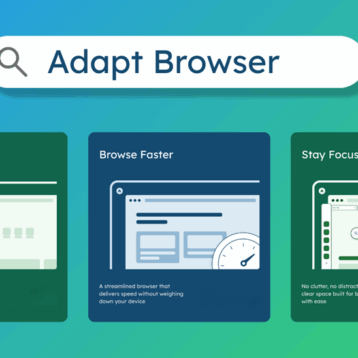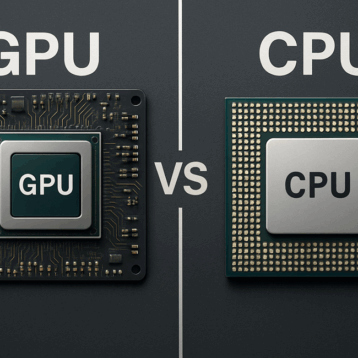Artificial Intelligence (AI) is revolutionizing healthcare in ways that were once thought to be science fiction. From improving patient outcomes to streamlining operations, AI’s potential in reshaping healthcare is immense. As the healthcare industry continues to embrace AI-driven technologies, we are witnessing a shift towards more personalized care, faster drug development, and improved operational efficiency. In this article, we explore key applications of AI in healthcare and how these innovations are transforming the industry.

AI in Drug Discovery and Development
One of the most promising areas where AI is making an impact is in drug discovery and development. Traditional drug development is a time-consuming and costly process, often taking years before a new drug is brought to market. AI helps to accelerate this process by analyzing large datasets and identifying potential drug candidates more quickly.
Machine learning algorithms can predict how different compounds will interact with specific diseases, significantly reducing the time required for research and clinical trials. This level of precision not only speeds up the discovery of new drugs but also helps identify the most promising therapies for specific patient populations. Moreover, AI can assist in optimizing drug formulations, ensuring that treatments are both effective and safe for patients.
AI is also helping to improve the manufacturing process of biologics. For example, AI-driven models could in the future be used to monitor the LNP manufacturing process, a critical part of developing lipid nanoparticles (LNPs) for mRNA vaccines and therapies. By enhancing this process, AI can improve the efficiency and quality of biologic drug production, paving the way for future treatments. According to Forbes Health, these innovations are setting the stage for faster and more cost-effective therapies in the future.
Improving Patient Care with AI
Beyond drug development, AI is having a profound impact on patient care. AI-powered tools are now used to analyze patient data, enabling healthcare providers to offer more accurate diagnoses and treatment plans. Machine learning algorithms can assess a patient’s medical history, genetic information, and lifestyle data to suggest personalized treatment options.
AI is also playing a significant role in the early detection of diseases, especially in the field of oncology. By analyzing medical images, AI can identify signs of cancer that may be missed by the human eye. For instance, AI has been used to detect lung cancer in radiology scans with higher accuracy than human radiologists, potentially saving lives through earlier intervention. As highlighted by BBC, AI-powered tools are becoming an indispensable part of oncology, helping doctors provide more accurate and timely treatments.
Additionally, AI is being integrated into remote monitoring tools, allowing patients to receive continuous care from the comfort of their own homes. Wearable devices equipped with AI can track vital signs like heart rate, blood pressure, and oxygen levels, alerting healthcare providers to any irregularities in real-time. This not only improves patient outcomes but also reduces hospital readmissions and healthcare costs.
AI in Healthcare Administration and Operations
AI is not only revolutionizing clinical care but also helping healthcare organizations streamline their operations. From managing patient records to optimizing hospital workflows, AI can automate administrative tasks, reducing the administrative burden on healthcare providers and allowing them to focus more on patient care.
Natural language processing (NLP) technologies, for instance, are being used to analyze and categorize unstructured data, such as doctors’ notes, medical journals, and patient feedback. This helps create more efficient electronic health record (EHR) systems, which in turn enables healthcare providers to access patient information quickly and accurately.
AI is also being applied to improve hospital resource management. Predictive analytics can be used to forecast patient admissions, enabling hospitals to optimize staffing levels and allocate resources more effectively. This helps reduce wait times, improve patient flow, and ensure that resources are available when needed.
Moreover, AI is assisting with supply chain management in healthcare by predicting demand for medical supplies and optimizing inventory management. This helps reduce costs, minimize shortages, and improve the overall efficiency of healthcare systems.
Ethical Considerations and Challenges
While the potential of AI in healthcare is vast, it also raises several ethical and regulatory challenges. The use of AI in patient care and drug development requires careful consideration of privacy, data security, and transparency. As AI algorithms are trained on large datasets of patient information, it is crucial to ensure that this data is protected and that AI systems are used responsibly.
Bias is another critical issue that must be addressed in AI healthcare applications. If AI algorithms are trained on biased data, there is a risk that they may perpetuate existing healthcare disparities. To mitigate this, healthcare organizations must prioritize diversity in the data used to train AI models and ensure that these models are regularly audited for fairness and accuracy.
Furthermore, the integration of AI into healthcare systems requires collaboration between technology developers, healthcare providers, and regulators. Clear guidelines and standards must be established to ensure that AI technologies are safe, effective, and ethically implemented.
AI and the Future of Healthcare
Looking to the future, AI is poised to continue reshaping the healthcare industry. Advancements in AI technologies, such as deep learning and neural networks, will enable even more sophisticated applications, from personalized medicine to real-time decision-making support. As AI continues to evolve, its ability to process and analyze vast amounts of data will unlock new insights into disease prevention, treatment, and patient care.
Moreover, the integration of AI with other emerging technologies, such as genomics and biotechnology, will pave the way for new therapeutic approaches. In particular, AI will play a crucial role in advancing precision medicine, where treatments are tailored to individual patients based on their genetic makeup and unique health profile.
The rise of AI in healthcare also opens up new opportunities for global health. AI-powered tools can be used to expand access to healthcare services in underserved regions, providing remote diagnosis, treatment recommendations, and monitoring. This could help bridge healthcare gaps and ensure that more people around the world benefit from the latest medical advancements.
Conclusion
Artificial Intelligence is driving unprecedented changes in the healthcare sector, with applications that are improving drug development, enhancing patient care, and streamlining operations. As AI continues to evolve, its impact will only grow, reshaping the way we deliver healthcare and improving outcomes for patients globally.
By leveraging AI to optimize the LNP manufacturing process and other critical aspects of drug development, healthcare organizations are setting the stage for the next generation of therapies. However, as AI continues to permeate the healthcare industry, it is essential to address ethical considerations and ensure that these technologies are used responsibly and for the benefit of all patients.
As AI continues to evolve, so too will its potential to transform healthcare, creating new opportunities for innovation and improving the overall quality of care. For more information on the potential of AI in healthcare, check out coverage from trusted outlets such as BBC on how AI is transforming healthcare delivery, and learn more from Forbes on AI-driven advancements in medical research.










